The Living Wisely Podcast
The Living Wisely podcast provides a framework and practical guidance for developing wisdom, focusing on personal responsibility, clear thinking, and understanding the world’s realities. This podcast encourages listeners to explore what is, envision what can be, choose what ought to be, and take action to create a better world. It integrates numerous resources, including books, essays, and external courses, and proposes a roadmap for personal and social growth. The podcast also incorporates research projects, encourages thoughtful engagement with external resources, and emphasizes the interconnectedness of personal growth, social responsibility, and a global perspective. The audio in these podcast episodes is generated by NotebookLM, an artificial intelligence service, from text at: https://en.wikiversity.org/wiki/Living_Wisely
Episodes

Monday Feb 24, 2025
Monday Feb 24, 2025
This podcast episode examines how societies create shared understandings and rules. It differentiates between brute facts, which exist independently of human perception, and social constructs, which are built upon collective agreement. These constructs, like language, money, and governments, shape our reality. The resource explores how ambiguity and misalignment between constructs and brute facts can lead to societal challenges. It analyses the nature of agreement, whether implicit or explicit, in shaping these constructs. The podcast source also offers reading recommendations and assignments to encourage critical thinking about the social constructs we often take for granted.
The audio file was generated by the NotebookLM artificial intelligence tool, based on source information from https://en.wikiversity.org/wiki/Exploring_Social_Constructs
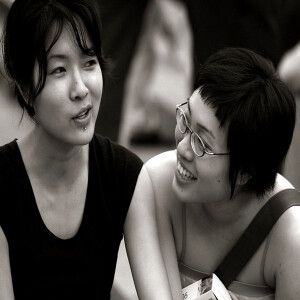
Sunday Feb 16, 2025
Sunday Feb 16, 2025
This podcast episode explores Street Epistemology (SE), a conversational technique for examining the reliability of beliefs. It outlines the principles, preparation, execution, and evaluation of SE dialogues. SE uses Socratic methods to encourage individuals to reflect on the reasons behind their convictions, without aiming to change specific beliefs. The guide covers fostering a respectful environment, asking effective questions, and addressing common justifications like faith and relativism. It stresses the importance of promoting sound reasoning rather than pushing personal views. The resource offers practical advice for conducting these conversations in various settings and emphasizes continuous self-improvement through reflection and community engagement. Essentially, it's a guide to having productive discussions that encourage critical thinking about how we know what we know.
The audio file was generated by the NotebookLM artificial intelligence tool, based on source information from https://en.wikiversity.org/wiki/Street_Epistemology
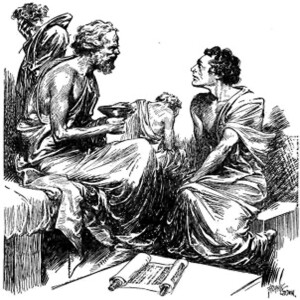
Wednesday Feb 12, 2025
Wednesday Feb 12, 2025
This podcast episode details the Socratic Method, a teaching technique using questions to guide learners to discover truths independently. It outlines the method's stages, from initial wonder and hypothesis formation to the elenchus (a critical dialogue to refine the hypothesis), and finally, acting on new understanding. The podcast emphasizes the importance of choosing a receptive interlocutor and cultivating a suitable inquisitor temperament, distinguishing the method from debates by highlighting its focus on collaborative insight rather than winning arguments. Finally, it explores the method's diverse applications in learning, challenging beliefs, teaching, and therapy.
The audio file was generated by the NotebookLM artificial intelligence tool, based on source information from https://en.wikiversity.org/wiki/Socratic_Methods

Sunday Feb 02, 2025
Sunday Feb 02, 2025
This podcast episode defines intellectual honesty as truthful communication, emphasizing the importance of accurate fact-finding and unbiased presentation. It explores the moral duty to be honest, especially when influencing others, and details how intellectual dishonesty harms individuals and society. The associated text provides exercises and assignments focusing on developing intellectual virtues like humility, tolerance, and fidelity, as well as practical skills in evidence evaluation and fallacy recognition to achieve intellectual honesty. Numerous examples of intellectual dishonesty and suggested readings are included to further support the learning process.
The audio file was generated by the NotebookLM artificial intelligence tool, based on source information from https://en.wikiversity.org/wiki/Intellectual_honesty

Monday Jan 27, 2025
Monday Jan 27, 2025
This podcast episode, "Knowing How You Know," guides students in developing a personal theory of knowledge. It explores how individuals form beliefs, distinguishes reliable information from misinformation, and emphasizes the importance of critical thinking and evidence-based reasoning.
The episode uses assignments and readings to help students examine their own belief systems, identify biases, and refine their methods for determining what is true. Ultimately, it aims to equip learners with the skills to make informed judgments and build a more accurate understanding of the world.
The audio file was generated by the NotebookLM artificial intelligence tool, based on source information from https://en.wikiversity.org/wiki/Knowing_How_You_Know
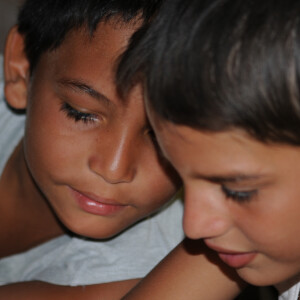
Sunday Jan 19, 2025
Sunday Jan 19, 2025
This podcast episode outlines the principles of scientific thinking. It emphasizes the importance of wonder, empirical evidence, and embracing reality, while highlighting the need for openness, collaboration, and intellectual honesty. The episode stresses the evolution of understanding through falsification and the value of reproducibility and objectivity. Assignments throughout encourage reflection and practical application of these principles.
The audio file was generated by the NotebookLM artificial intelligence tool, based on source information from https://en.wikiversity.org/wiki/Thinking_Scientifically
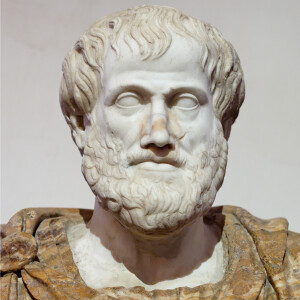
Sunday Jan 05, 2025
Sunday Jan 05, 2025
This podcast episode is a course on recognizing logical fallacies. It defines fallacies as errors in reasoning that can seem correct but are ultimately flawed. The course categorizes fallacies into types—relevance, presumption, ambiguity, and formal fallacies—and provides examples. It aims to improve critical thinking skills by enabling students to identify and analyze such errors in arguments. The referenced course incorporates numerous external resources for further learning.
The audio file was generated by the NotebookLM artificial intelligence tool, based on source information from https://en.wikiversity.org/wiki/Recognizing_Fallacies
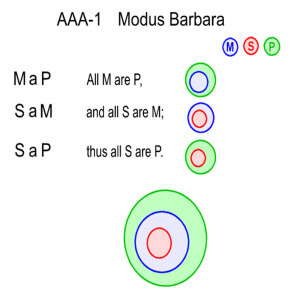
Sunday Dec 29, 2024
Sunday Dec 29, 2024
This podcast episode introduces deductive logic, explaining its purpose in evaluating the consistency of statements and deriving true conclusions. It outlines learning objectives, covering key concepts like truth functions, arguments, and inference rules. The resource also emphasizes Aristotle's Law of Non-Contradiction as a foundational principle. Furthermore, it lists recommended readings and integrates with broader curricula on critical thinking and applied wisdom. The episode ultimately aims to build a foundational understanding of deductive logic for further study.
The audio file was generated by the NotebookLM artificial intelligence tool, based on source information from https://en.wikiversity.org/wiki/Deductive_Logic
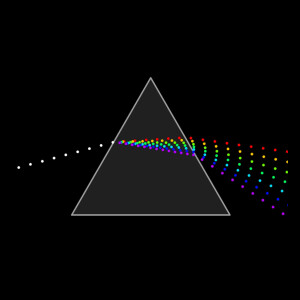
Sunday Dec 22, 2024
Sunday Dec 22, 2024
This podcast episode, "Exploring Worldviews," guides listners to examine their own deeply held beliefs and assumptions about the world. It encourages critical analysis of these beliefs by presenting contrasting viewpoints and prompting reflection on various aspects of human nature, knowledge, morality, and relationships. The course uses a structured assignment to facilitate self-awareness and potential revision of one's worldview for improved well-being. It emphasizes the importance of aligning personal beliefs with reality and suggests further reading to enhance understanding. Ultimately, the aim is to cultivate intellectual flexibility and a more accurate understanding of the world.
The audio file was generated by the NotebookLM artificial intelligence tool, based on source information from https://en.wikiversity.org/wiki/Exploring_Worldviews
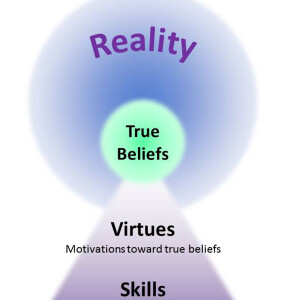
Sunday Dec 15, 2024
Sunday Dec 15, 2024
This podcast episode on Seeking True Beliefs, explores virtue epistemology, examining how intellectual virtues like curiosity and humility, coupled with skills in critical thinking and evidence evaluation, guide us towards true beliefs. It argues that acquiring true beliefs is a matter of both will and skill, urging personal responsibility for the beliefs we hold. The course this podcast was derived from uses various assignments and examples to illustrate the importance of intellectual virtues in navigating information, overcoming biases, and fostering a genuine pursuit of knowledge. Ultimately, it advocates for a moral responsibility to seek true beliefs, promoting intellectual integrity and the pursuit of truth.
The audio file was generated by the NotebookLM artificial intelligence tool, based on source information from https://en.wikiversity.org/wiki/Seeking_True_Beliefs

Living Wisely
How do you want to live your life? Do you choose to live wisely? What are the steps that any of us can take, starting now, to live more wisely?
Audio materials are adapted from the information at http://en.wikiversity.org/wiki/Living_Wisely
Contact us at lelandbeaumont@icloud.com








